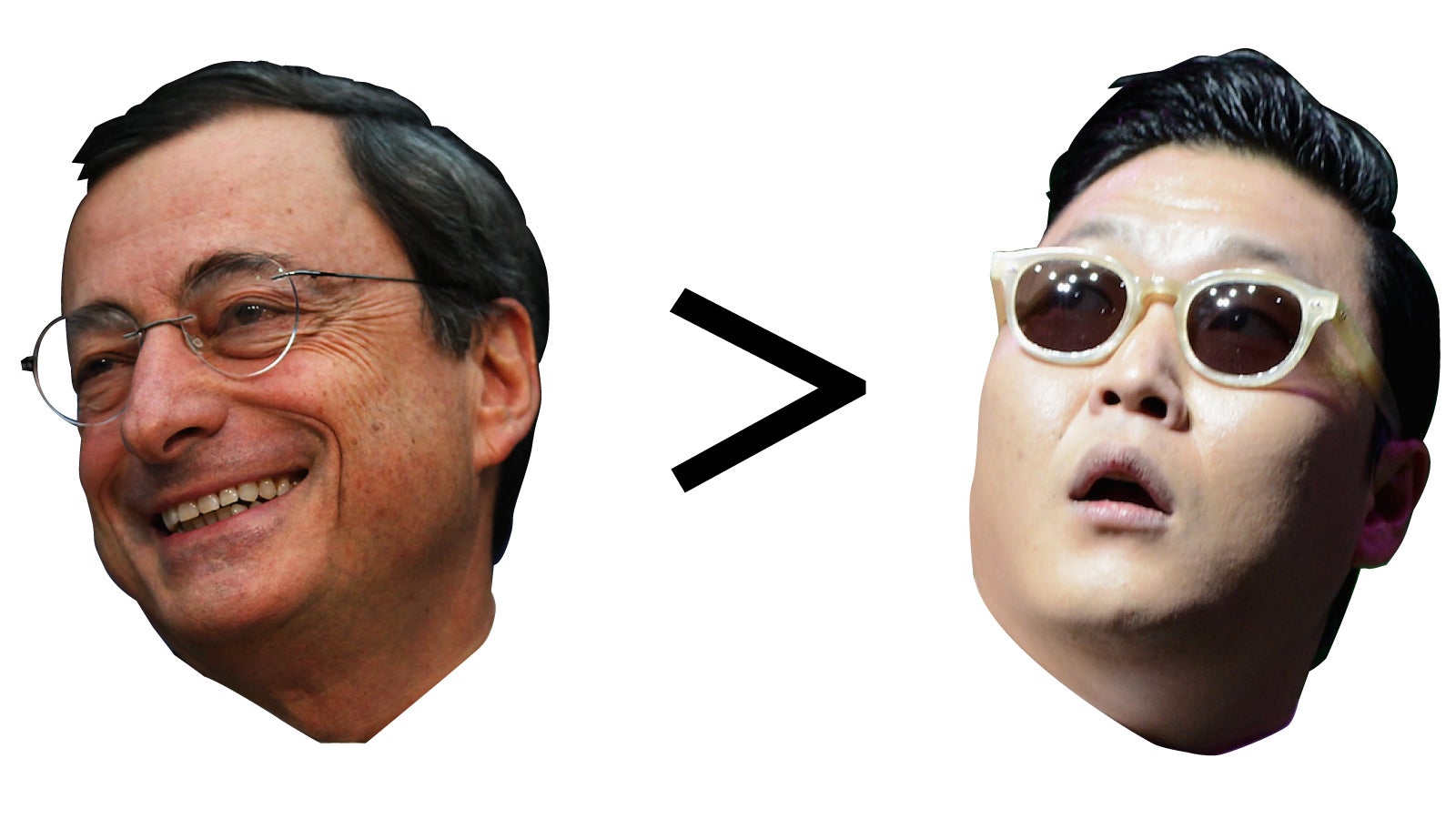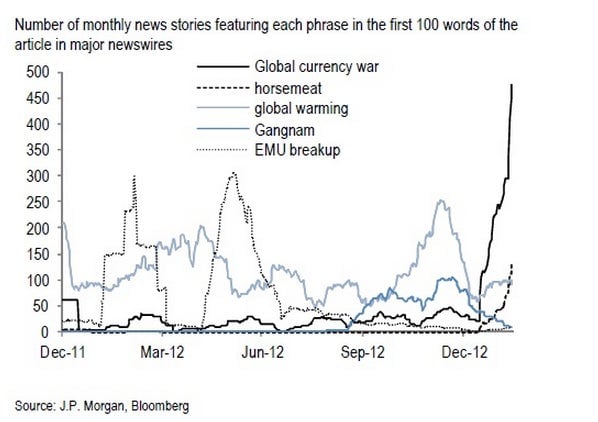The global “currency war” gets more news coverage than horsemeat and Gangnam Style
If it feels like the news is full of stories about a worldwide “currency war”, that’s because it is. According to an analysis by JP Morgan, major newswires mentioned the so-called currency war—a situation where countries try to devalue their currencies to get an advantage over others—more times last December than global warming, the possible break up of the European Monetary Union (the euro zone), Korean rapper Psy’s “Gangnam Style,” or Europe’s ongoing problems with horsemeat masquerading as beef.


If it feels like the news is full of stories about a worldwide “currency war”, that’s because it is. According to an analysis by JP Morgan, major newswires mentioned the so-called currency war—a situation where countries try to devalue their currencies to get an advantage over others—more times last December than global warming, the possible break up of the European Monetary Union (the euro zone), Korean rapper Psy’s “Gangnam Style,” or Europe’s ongoing problems with horsemeat masquerading as beef.

Of course, the horsemeat-in-the-supply-chain scandal kicked off in full force only in January. But when it started to spike, “horsemeat” was still far behind “currency war” in the ratings. Even “Gangnam style,” the YouTube video that passed 1 billion views in December and became the most watched in history, never merited so many mentions—though, of course, that also reflects the natural preference of newswires like Reuters and Bloomberg for currencies over K-pop.
It does suggest that the first rule of currency war—”Don’t say currency war“—isn’t being very closely observed. European Central Bank president Mario Draghi on Feb. 18 asked global leaders to exercise “very, very strong verbal discipline” on the topic, saying, “I think the less we talk about this the better.” We’ve noted previously that “currency wars” can actually help end a global slump by encouraging expansionary monetary policy in several countries, and that several emerging economies, concerned about high inflation, are likely to support stronger domestic currencies. Even if leaders ban the phrase, the debate doesn’t look likely to fade yet. Besides, there are still too many war-related puns left to make.